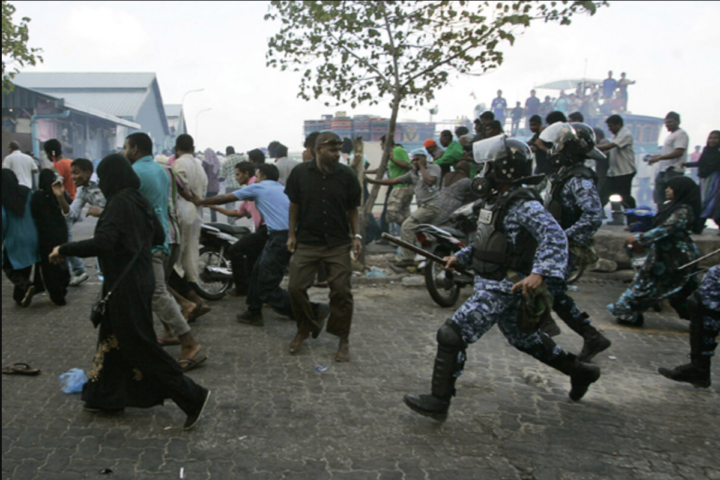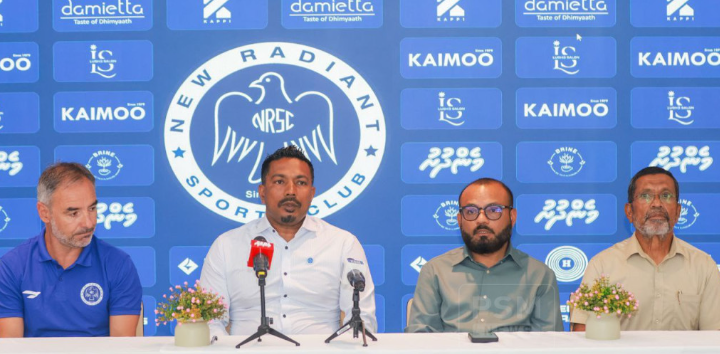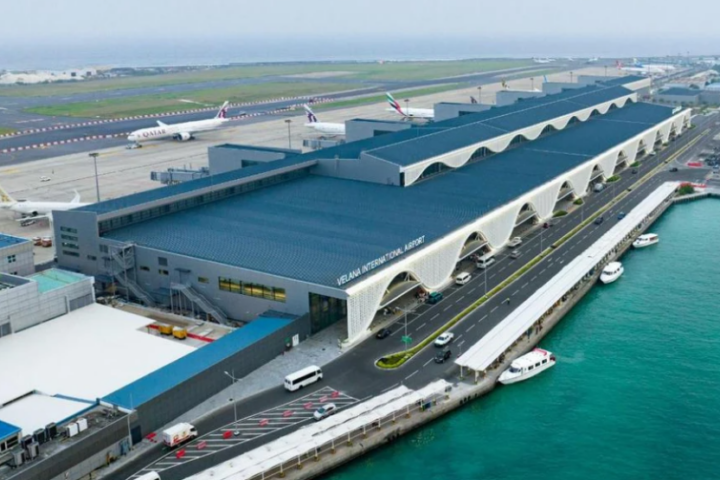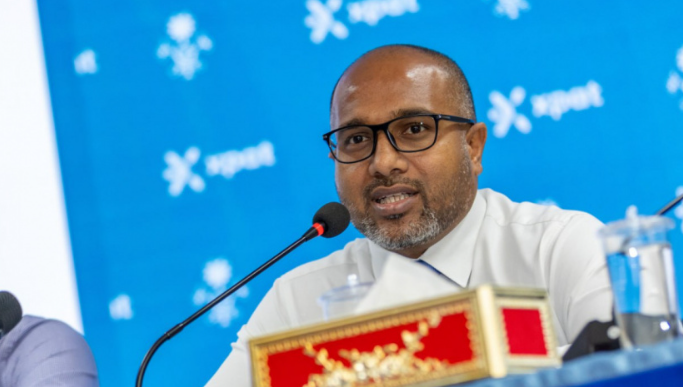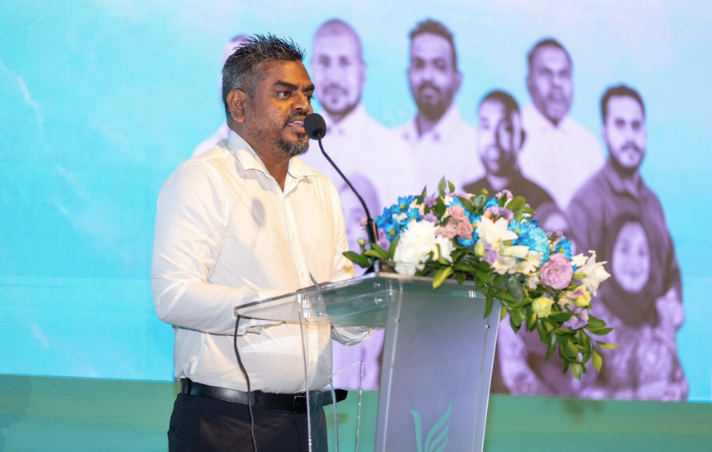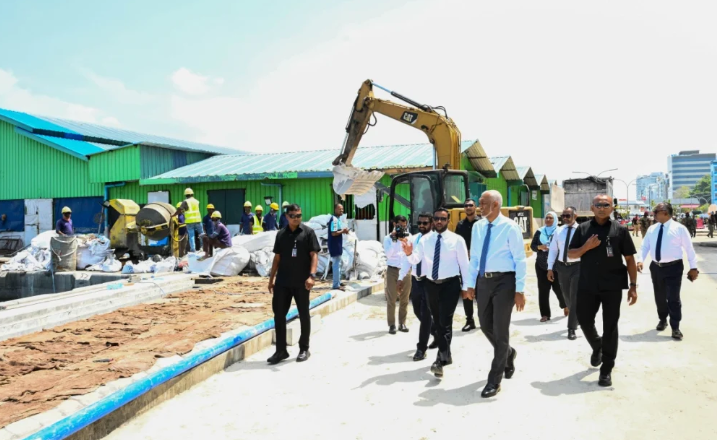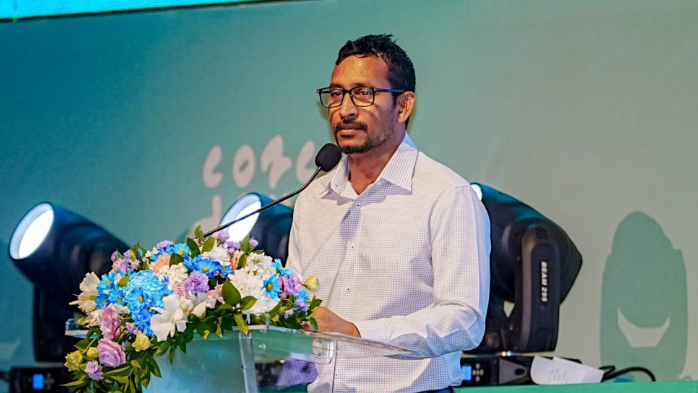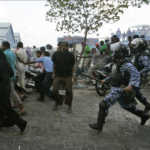MALÉ, Maldives — As the world observed International Democracy Day on 15 September, the Maldives was gripped by political unrest, its fragile commitment to free expression facing one of its toughest tests yet.
In the capital, the People’s Majlis, the country’s Parliament, turned into a scene of confrontation. Opposition lawmakers and journalists clashed with ruling party MPs over a contentious measure critics have labelled the “Media Control Bill,” warning it could strangle one of South Asia’s freest press environments.
The day began with tense deliberations inside the Majlis, where the Independent Institutions Committee took up the proposed legislation. Members of the opposition Maldivian Democratic Party (MDP) demanded their objections be heard, accusing the administration of silencing dissent. Outside, journalists staged a sit-in at the Parliament’s reception hall, chanting slogans and hashtags that have become rallying cries online: #CTRLBillBeyrukurey, #CTRLehNukureveyne, #LootuvaifiLootuvaifi, and #SaveOurSocials.
By afternoon the protest had spilled into the streets, uniting reporters and opposition figures in defiance. The bill, introduced by an independent member but widely believed to carry government backing, would merge the Maldives Media Council and the Maldives Broadcasting Commission into a single body under direct administrative authority. It grants sweeping powers to fine, suspend, or penalise outlets and individuals under broadly defined clauses.
Most troubling to critics is the bill’s expansive definition of “media,” which extends beyond media portals and broadcasters to encompass any online post — potentially opening ordinary citizens’ social media activity to punishment.
Attorney General Ahmed Usham has advised the president to soften some of the harsher provisions.
The Maldives Journalists Association (MJA), which represents nearly 70 percent of the country’s registered journalists, has mounted a public campaign against the bill, organising forums and petitions to rally support. “Tomorrow could mark the last day for an independent press and free speech in the Maldives,” the group warned on social media, urging citizens to join protests at the Majlis.
Journalists were removed from the committee session, which proceeded behind closed doors. The MDP denounced that step as a betrayal of democratic principles. “The administration’s misinformation campaigns and suppression of independent media show exactly where the country is headed,” the party said in a statement.
International watchdogs — including the Committee to Protect Journalists, Reporters Without Borders, and the International Federation of Journalists — also condemned the bill, demanding its withdrawal. They cited a growing pattern of violent arrests, harassment of reporters, and government dismissal of criticism as “misinformation.”
Abdulla Shahid, the MDP president and a former foreign minister, cast the bill as part of a broader assault on the nation’s institutions. “Politicising justice can [kill] democracy in the dark,” he wrote on social media, accusing the Muizzu administration of undermining judicial independence and intimidating critics. “This Democracy Day reveals the destruction of hard-won rights and freedoms.”
Malé’s mayor, Adam Azim, called the legislation a direct threat to transparency. “Our democracy thrives only when the media is free and accountable,” he said, urging solidarity with journalists.
Fayyaz Ismail, the MDP chairperson, pledged to join the demonstrations, further bolstering the opposition’s stance.
As night fell, the streets of Malé echoed with the voices of a small but determined crowd of demonstrators. For many, the fight has become larger than a single piece of legislation: it is about the future of Maldivian democracy itself.
With the government pressing ahead and anger building, the country stands at a crossroads. Whether it will protect the freedoms that have defined its democratic experiment or slide further towards authoritarianism, remains uncertain.
On this Democracy Day, the answer was unclear. What was clear was the resolve of those who refuse to be silenced.

